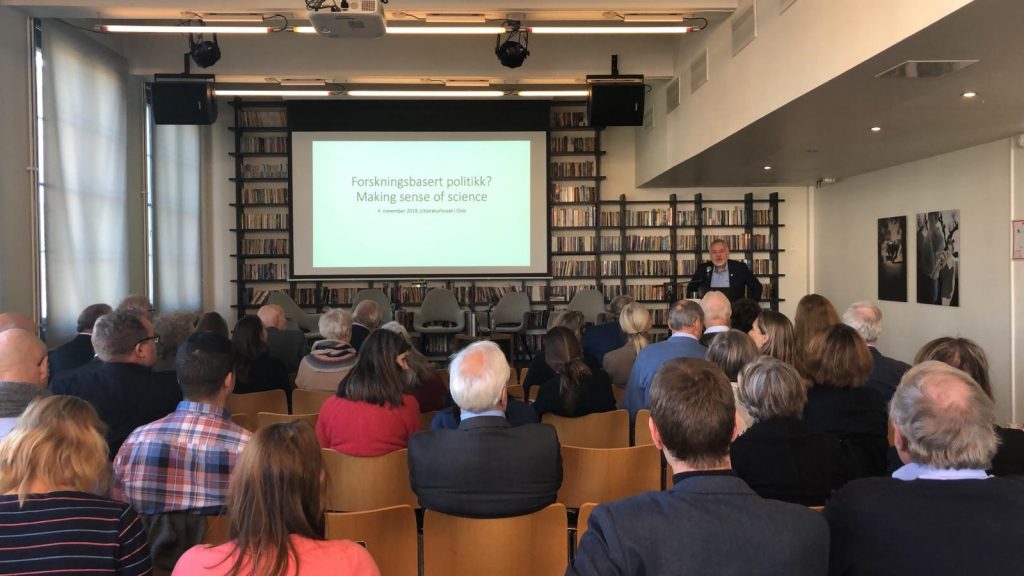Professor Eystein Jansen, Director of the Bergen Hub, welcomed everyone to the seminar and emphasised the timeliness of the topic under discussion. Professor Ole Petersen, Director of the Cardiff Hub (which coordinated the SAPEA report) gave an introduction to the European Science Advice Mechanism and the role played by academies within it.
Professor Jeroen van der Sluijs (Bergen), a member of the SAPEA Working Group, presented the key findings of the SAPEA report, with a thought-provoking response provided by Professor Silvio Funtowicz (Bergen) and a lively debate with the audience, with skillful moderation by Professor Matthias Kaiser (Bergen). Themes that came up included:
- The issue of bias and the underrepresentation of certain social groups within science
- The role of the humanities in evidence-informed policymaking
- The potential for including different types of knowledge and extended peer communities in science advice
An interesting case study came from Finland, which is trialling a new approach to science advice, drawing on insights from the European Commission’s Science Advice Mechanism. Professor Risto Nieminen, President of the Finnish Academy, spoke of the contribution that could be made by academies to the design and operation of such a system.
The second half of the seminar put science advice in Norway under the spotlight. Professor Oystein Hov (Norwegian Academy) gave several examples of success and failure of science advice in Norway. Kyrre Lekve (Simula) spoke of two contrasting relationships experienced by science advisers, one with civil servants, the other with politicians.
The closing discussion between the panel and the audience, also moderated by Matthias Kaiser, gave rise to further reflections on science advice in Norway. They included:
- The nature of risk assessment, citing the example of mercury contamination from a sunken U-boat off the Norwegian coast
- The contribution the European science advice model could make to solving policy problems in Norway
- The use and potential misuse of scientific knowledge in the context of policymaking
Look out for a full report on the seminar, to be published in the coming weeks on the webisite of Academia Europaea Cardiff Hub. There, you can also read the original version of this article.

